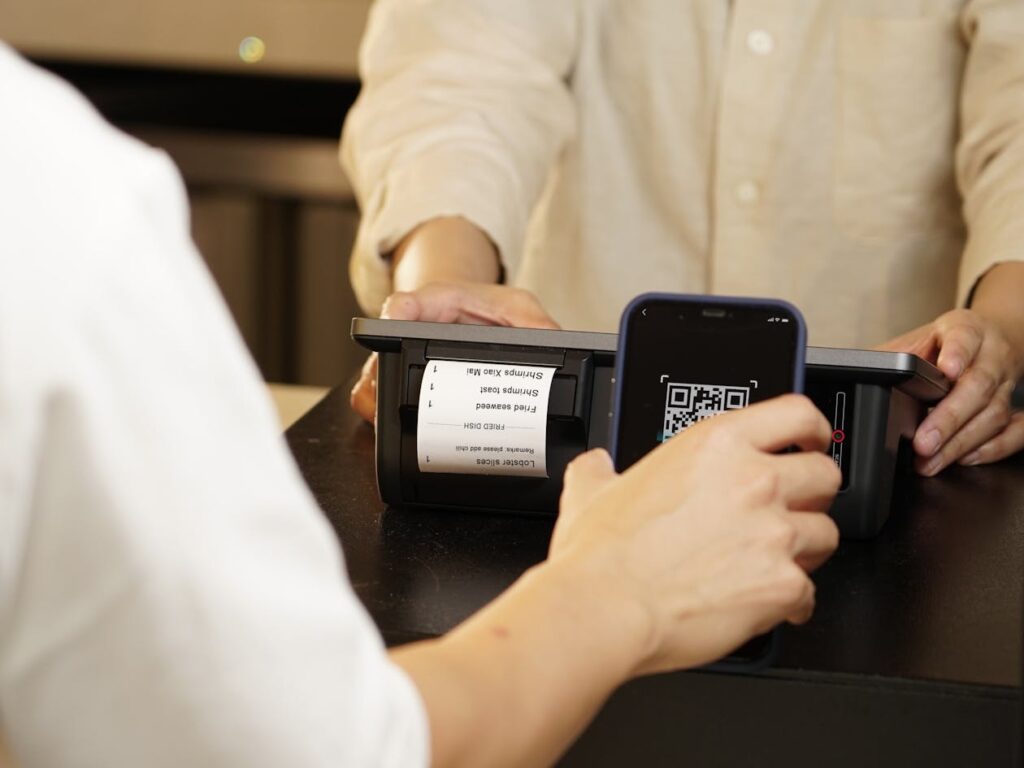Couple Charged Nearly $4,500 by Starbucks for Two Cups of Coffee After Selecting ‘No Tip’ Option

Two coffee drinks. One routine morning. A family’s financial security destroyed in thirty seconds. Jesse O’Dell walked into his neighborhood Starbucks on January 7th expecting to spend about ten dollars on his usual order. What happened next would spiral into a customer service nightmare that left his family of six without access to their money for weeks.
Electronic payment systems process transactions in milliseconds, but fixing their mistakes can take months. One Oklahoma family discovered how quickly a simple coffee run can become a financial catastrophe when corporate systems fail and customer service representatives offer more excuses than solutions.
Ten Dollar Coffee Order Becomes Four Thousand Dollar Nightmare
Jesse O’Dell followed his regular routine that January morning in Tulsa. His wife Deedee wanted an iced Americano. He ordered his usual venti caramel frappuccino. Two drinks that normally cost around ten dollars for their family of six.
Nothing seemed unusual during the transaction. Jesse paid with his card, grabbed the drinks, and headed home. Like most busy parents, he didn’t study his receipt before leaving the store. Coffee shops process hundreds of similar transactions daily without incident.
Yet something had gone catastrophically wrong with this particular order. A mysterious charge would soon appear on their account that defied explanation. What should have been routine family spending became a financial emergency that stretched for weeks.
Hidden $4,444.44 Tip Destroys Family Budget Instantly
Days passed before the O’Dell family discovered their financial crisis. Deedee was shopping at a local mall with their four children when she attempted to use the same credit card for a purchase. To her shock, the card got declined despite having sufficient funds in their account.
Banking records revealed the devastating truth. Starbucks had charged their account $4,456.27 for two cups of coffee. Somehow, a mysterious gratuity of $4,444.44 had been added to their simple beverage order. Parents with four children suddenly lost access to funds without warning or explanation.
Normal family spending ground to a halt. Grocery shopping, gas purchases, and other essential expenses became impossible until the error could be resolved. A routine coffee purchase had transformed into a major financial emergency affecting six family members.
Customer Service Hell Begins With Dozens of Phone Calls

Jesse immediately contacted Starbucks customer service to report the obvious error. What followed was a frustrating cycle of phone calls, transfers, and repeated explanations that consumed entire days without producing solutions.
“We contacted their customer service helpline probably 30 to 40 times that day,” Jesse explained. Representatives struggled to understand how such a massive charge could occur on a simple coffee order. Each call required the family to re-explain their situation to new representatives who seemed unprepared to handle such an unusual case.
Customer service systems designed for typical complaints couldn’t accommodate a nearly $4,500 coffee charge. Representatives lacked authority to immediately reverse such large amounts, creating delays that prolonged the family’s financial distress. Standard procedures became obstacles rather than solutions.
Hours of phone calls yielded promises of resolution but no immediate relief. Meanwhile, the O’Dell family remained locked out of their own money while corporate bureaucracy slowly processed their case.
Bounced Checks Add Insult to Financial Injury
Starbucks eventually sent compensation checks to cover the massive overcharge. Jesse and Deedee felt relieved that their ordeal was finally ending. They deposited the checks, expecting their account balance to return to normal within days.
Instead, the checks bounced, creating additional problems and bank fees. Starbucks had compounded their original error with faulty compensation, leaving the family worse off than before. Banking complications added stress to an already overwhelming situation.
Company representatives later admitted the first checks contained processing errors. However, this explanation did little to help the O’Dell family, who now faced both the original overcharge and additional banking complications from bounced checks.
Family Vacation Cancelled Due to Coffee Company Error

Real-world consequences extended far beyond banking inconvenience for the O’Dell family. “We had planned to take a trip but had to cancel and the tickets are non-refundable,” Jesse explained. Their children’s vacation was sacrificed because Starbucks couldn’t quickly resolve a simple processing error.
Non-refundable travel expenses became permanent losses due to corporate mistakes. Financial planning that took months to arrange was destroyed by a thirty-second transaction error. Four children missed their family vacation because adults couldn’t fix a computer glitch.
Family budgets operate on tight schedules and planned expenses. When thousands of dollars suddenly become inaccessible, families must cancel commitments, miss opportunities, and explain disappointments to children who don’t understand corporate processing failures.
Conflicting Stories Emerge About What Really Happened
Starbucks representatives provided inconsistent explanations for the massive overcharge. Company spokespeople told media outlets that Jesse had submitted the enormous tip himself during the ordering process. Jesse denied this accusation, maintaining he selected no tip option.
District managers offered different explanations, telling the family that network issues had caused the processing error. Technical problems seemed more plausible than a customer voluntarily adding a $4,444.44 tip to a coffee order. However, corporate messaging remained confused and contradictory.
Different Starbucks representatives provided different explanations to the same family, undermining confidence in the company’s understanding of what had actually occurred. Inconsistent messaging suggested internal confusion about their own payment processing systems.
Police Report Filed Against Coffee Giant

Frustrated by weeks of corporate runaround, the O’Dell family filed a formal complaint with the Tulsa Police Department. They treated the incident as potential fraud, documenting the unauthorized charges for legal purposes. What began as customer service issue had escalated to potential criminal investigation.
Police reports create official documentation that can support consumer protection claims and legal action. Families shouldn’t need law enforcement intervention to resolve coffee shop billing errors, yet corporate customer service failures sometimes force such drastic measures.
Legal documentation also provides leverage for families dealing with unresponsive corporate bureaucracies. Companies may prioritize cases differently when police reports and potential fraud investigations become involved.
Point-of-Sale Systems Create Vulnerability for Customers
Electronic payment processing allows for errors that would be impossible with cash transactions. Tip screens on card readers can malfunction, multiply charges, or process incorrect amounts without immediate detection. Technology designed to improve convenience can create new financial vulnerabilities.
Network glitches during electronic transactions can produce bizarre results like massive unauthorized tips. Customers typically don’t inspect receipts carefully for routine purchases, allowing errors to go undetected for days or weeks. Digital payment speed comes with hidden risks.
Modern payment systems process hundreds of variables during each transaction. Menu items, tax calculations, tip amounts, and payment methods all create opportunities for software errors that can devastate family budgets in seconds.
Red Flags Every Coffee Shop Customer Should Know

Smart consumers can protect themselves by developing better payment habits. Always examine receipts immediately after purchase, particularly when using electronic payment methods. Tip screens deserve careful attention, as accidental touches can add hundreds or thousands to simple purchases.
Monitor bank accounts daily rather than weekly or monthly. Electronic errors compound quickly, and early detection enables faster resolution. Set up account alerts for transactions above certain thresholds to catch unusual charges immediately.
Question any unusual prompts during electronic payments. If tip screens display unexpected amounts or payment terminals behave strangely, ask staff for assistance before completing transactions. A few extra seconds of caution can prevent weeks of financial problems.
When Customer Service Systems Fail Ordinary People
Large corporations often design customer service systems for typical problems rather than unusual cases. Representatives may lack authority to resolve major billing errors immediately, creating delays that harm innocent customers. Corporate policies can become barriers rather than solutions.
Average families get caught in bureaucratic systems designed for business-to-business relationships. Consumer protection laws provide some relief, but families may lose access to funds during dispute processes. Banks and credit card companies offer limited help during active investigations.
“This is something that has caused duress in our family and hopefully others don’t have to go through something like this,” Jesse reflected. His experience highlights how corporate errors can devastate ordinary families who lack resources to fight extended legal battles.
Practical Steps to Protect Your Money During Coffee Runs
Use credit cards instead of debit cards for better fraud protection. Credit card companies typically offer stronger consumer protections and faster dispute resolution. Debit card errors can lock families out of checking accounts for extended periods.
Take photos of receipts for purchases over certain amounts, creating backup documentation if original receipts get lost. Digital records stored on phones provide evidence during disputes with merchants or banks.
Set up automatic account alerts for transactions above normal spending patterns. Banks can send immediate notifications when unusual charges appear, enabling faster response to potential errors or fraud.
Report problems to both merchants and banks immediately when discovered. Early notification often leads to faster resolution and better consumer protection under credit card regulations.
Corporate payment processing errors can destroy family budgets without warning. Jesse and Deedee O’Dell learned this lesson the hard way when their routine coffee run became a financial nightmare that lasted weeks. Their experience serves as a warning about the hidden vulnerabilities in electronic payment systems and the importance of vigilant consumer protection habits in our digital economy.
Loading...

